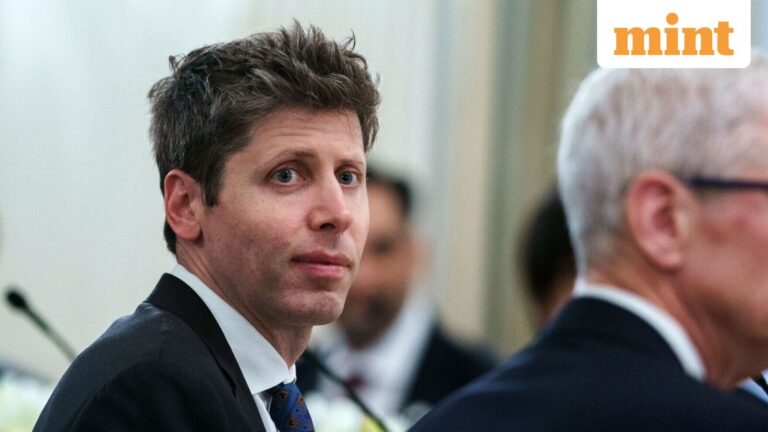Openai CEO Sam Altman proposed that with artificial intelligence systems increasingly becoming more and more capable, access to these powerful systems could one day be considered a fundamental human right.
In a blog post Tuesday, Altman wrote: “As AI gets smarter, access to AI becomes a fundamental driving force in the economy and ultimately considers it a fundamental human right.
Altman’s statement comes one day after Nvidia committed to investing up to $100 billion in ChatGPT makers to develop AI infrastructure. Under the partnership, Openai aims to build large data centers by deploying at least 10 gigawatt Nvidia systems, including millions of GPUs.
The first gigawatts of computing power using Nvidia’s Vera Rubin platform is expected to be rolled out by the second half of 2026.
Altman spoke about the importance of 10 gigawatt computing in realizing his AI vision.
“If AI remains on the trajectory we think it will be, then something amazing can be done. With 10 gigawatts of computing, AI can figure out how to treat cancer, Altman pointed out.
“Our vision is simple. We want to create a factory that can produce new gigawatts of AI infrastructure each week,” he added.
Altman also said Openai will reveal “interesting new ideas” about its plans to build these new AI factories and expand its computing power.
For many years, Openai has relied on its main advocate, Microsoft, for the large computing needs needed to train and execute new AI models.
Earlier this year, Openai signed a $300 billion deal with Oracle to purchase Project Stargate’s 4.5 gigawatts of computing capacity.
Meanwhile, a Financial Times report suggests that Openai is preparing to design and manufacture its own artificial intelligence chips with the support of Semiconductor Giant Broadcom. The first unit is reportedly expected to ship next year, but it could initially only be deployed within Openai’s own infrastructure.


